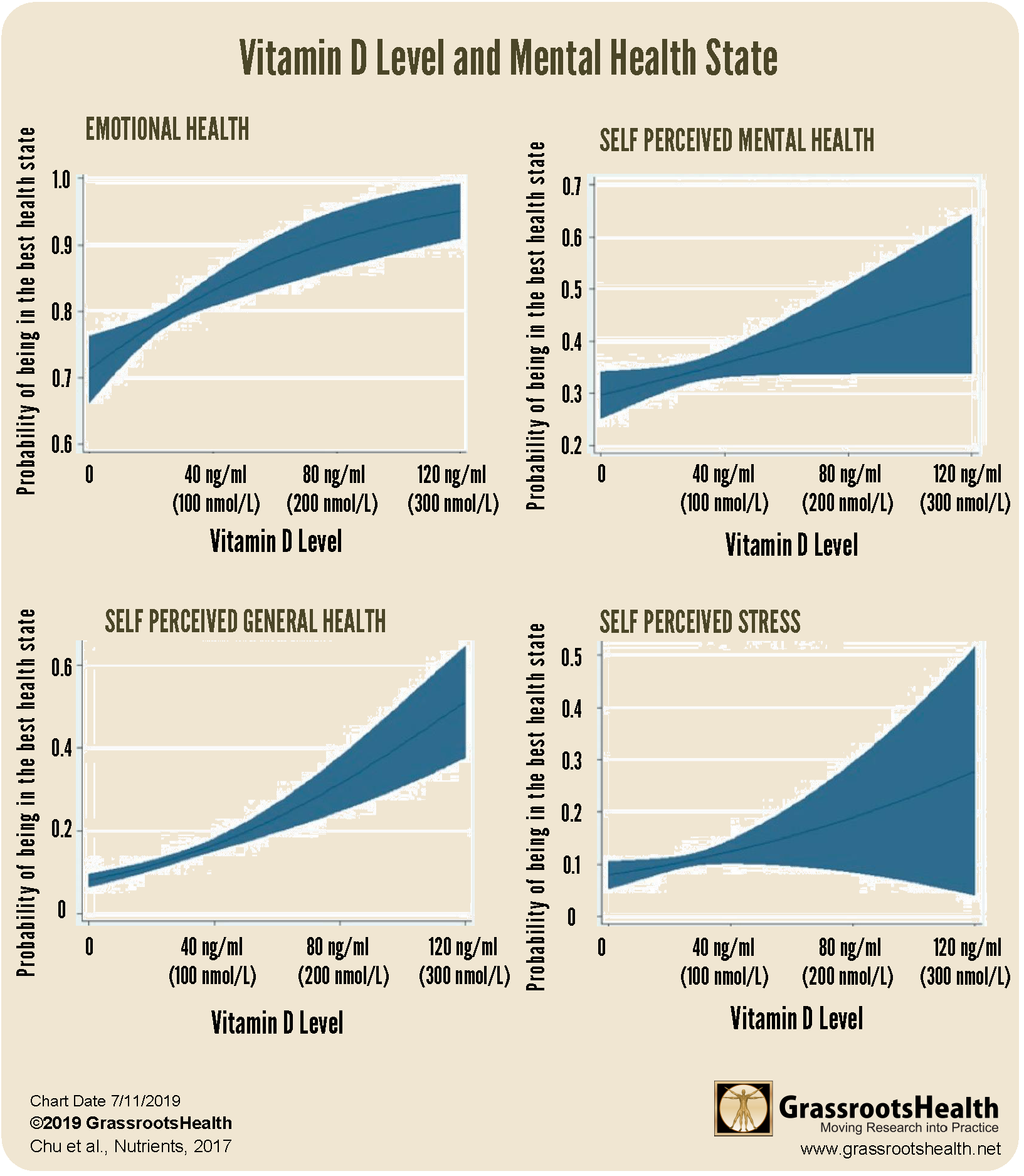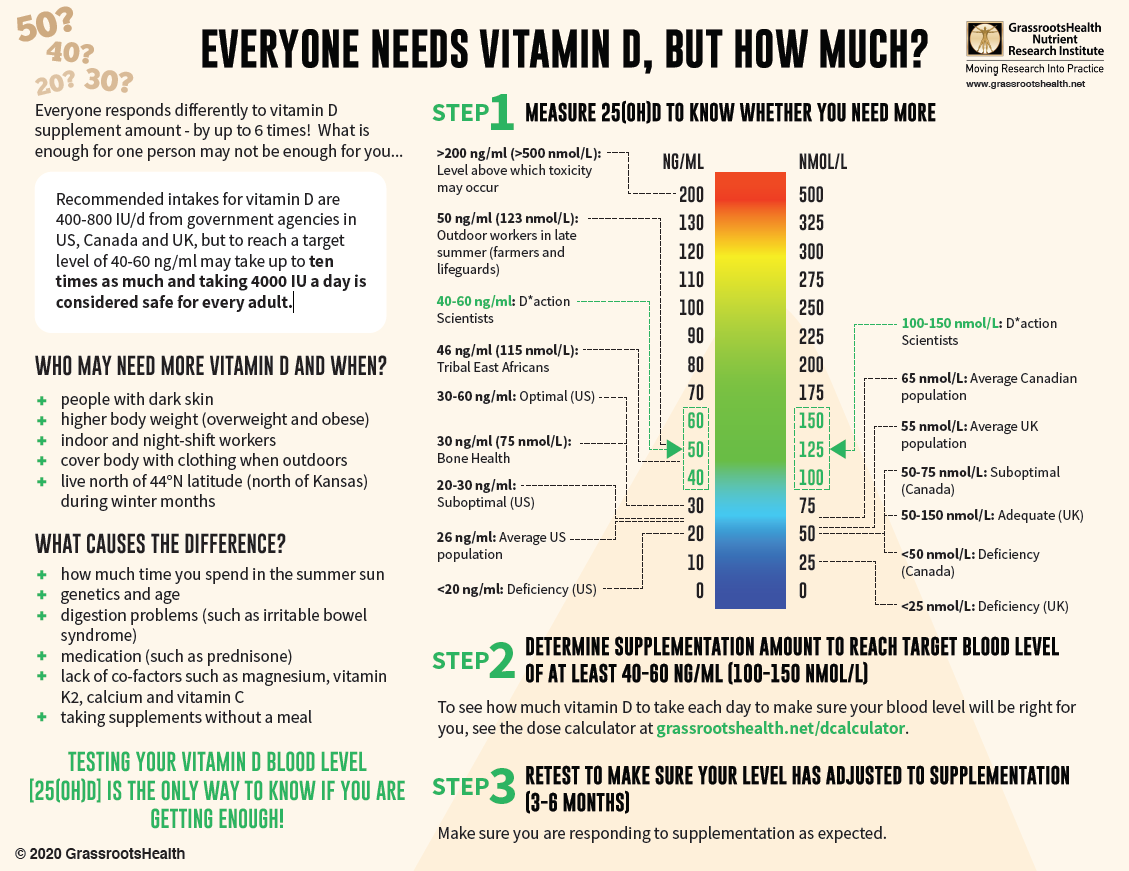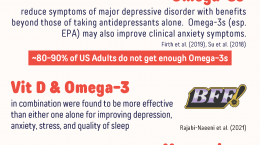Published on February 1, 2021
What is Vitamin D Good For? (Part 2: The Brain & Nervous System) – Vitamin D is needed by virtually every cell in the body, and is essential for hundreds of processes each and every day


Last week, we explained why vitamin D is important to the musculoskeletal system; today, we take a look at why vitamin D is important to the health and function of the brain and nervous system for overall cognitive, mental, and emotional wellness.
Your Brain Needs Vitamin D
Mental health conditions are very common, with an estimated 50% of Americans and Canadians diagnosed with a mental disorder at some point in their lifetime by middle age. The crisis has been even greater during the COVID-19 pandemic, with an observed increase in incidence of anxiety, depression, post-traumatic stress disorder and suicide. In recent years, cognitive health has also been declining. 1 in every 3 seniors die with some form of dementia, and between the years 2000 and 2018, deaths due to Alzheimer’s increased by 146%.
Vitamin D has been biologically linked to emotional well-being, mood, cognition, and better mental health overall. One study on vitamin D and mental health in particular found that self-perceived measurements of mental and emotional wellness were positively associated with higher vitamin D levels.
How can vitamin D have such an influence on mental and emotional wellbeing?
Vitamin D functions in the brain and nervous system to:
- Stimulate neural cell growth and maturation during brain development
- Protect neural cells from damage due to oxidative stress and inflammation
- Play a role in the production of neurotransmitters (dopamine, serotonin, acetylcholine, catecholamine)
Mental Illness and Neurodegenerative Disease associated with low vitamin D include:
- Alzheimer’s Disease & Dementia
- Cognitive decline
- Parkinson’s disease
- Depression/Anxiety/Seasonal Affective Disorder
- Schizophrenia
- Autism & ADHD
- Migraines
- Multiple sclerosis
- Macular degeneration
The Connection Between Inflammation and Mental/Emotional Wellness
Managing chronic inflammation is extremely important for diseases associated with the brain and nervous system. Multiple studies have found a direct correlation between high levels of inflammation and increased incidence of mental-emotional health problems. Previously, we reviewed a study assessing the effects of chronic inflammation on cognitive health, where higher levels of C-reactive protein (CRP) were related to an increase in cognitive decline. Vitamin D is known to be associated with the risk of many of these inflammation-based diseases, with higher levels of vitamin D associated with lower levels of inflammatory markers and lower disease risk.
Other Important Co-Nutrients for Mental & Emotional Health
Don’t forget that vitamin D works along with other essential nutrients for our health. For our brain and nervous system, these include:
- Magnesium for stress/anxiety, ADHD and cognitive decline
- Omega-3s for cognitive impairment, anxiety/depression, SAD, and ADHD
- Probiotics for cognitive decline
- And many others…
Are You Getting Enough Vitamin D to Support Your Mental & Emotional Wellbeing?
With almost 90% of the general population having vitamin D levels below the recommended 40-60 ng/ml (100-150 nmol/L), it is obvious that most people need more vitamin D. While most of us cannot achieve a vitamin D level of 40-60 ng/ml from sun alone, either due to our lifestyle, where we live, or other circumstances, we can certainly reach those levels with the right amount of supplementation.
Below is a guide for how much you might need, and who may need more. Your levels can be tested safely at home – order your home test kit today.
By joining the GrassrootsHealth projects, you are not only contributing valuable information to our study, but you are also gaining knowledge about how you could improve your own health through measuring and tracking your nutrient status, and educating yourself on how to improve it. Do you know what your status of vitamin D, omega-3s, and other essential nutrients is? Could your levels be improved? Test now to find out!










